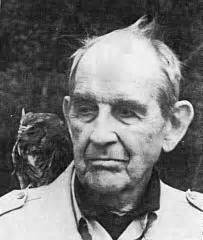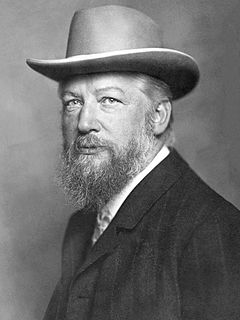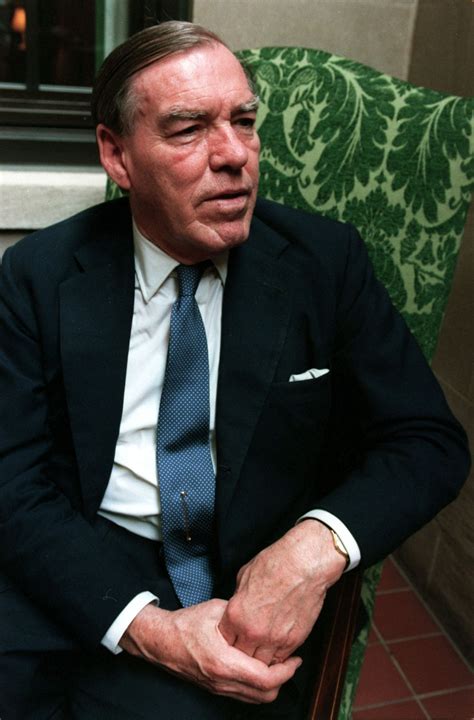A Quote by Henry David Thoreau
Hence it will not do for the Landlord to possess too fine a nature.... He must have no idiosyncracies, no particular bents or tendencies to this or that, but a general, uniform, and healthy development, such as his portly person indicates, offering himself equally on all sides to men.
Related Quotes
God, Who is by nature good and dispassionate, loves all men equally as His handiwork. But He glorifies the virtuous man because in his will he is united to God. At the same time, in His goodness he is merciful to the sinner and by chastising him in this life brings him back to the path of virtue. Similarly, a man of good and dispassionate judgment also loves all men equally. He loves the virtuous man because of his nature and the probity of his intention; and he loves the sinner, too, because of his nature and because in his compassion he pities him for foolishly stumbling in darkness.
Good work is no done by "humble" men. It is one of the first duties of a professor, for example, in any subject, to exaggerate a little both the importance of his subject and his own importance in it. A man who is always asking "Is what I do worth while?" and "Am I the right person to do it?" will always be ineffective himself and a discouragement to others. He must shut his eyes a little and think a little more of his subject and himself than they deserve. This is not too difficult: it is harder not to make his subject and himself ridiculous by shutting his eyes too tightly.
A perfect historian must possess an imagination sufficiently powerful to make his narrative affecting and picturesque; yet he must control it so absolutely as to content himself with the materials which he finds, and to refrain from supplying deficiencies by additions of his own. He must be a profound and ingenious reasoner; yet he must possess sufficient self-command to abstain from casting his facts in the mould of his hypothesis.
There is a great difference, whether the poet seeks the particular for the sake of the general or sees the general in the particular. From the former procedure there ensues allegory, in which the particular serves only as illustration, as example of the general. The latter procedure, however, is genuinely the nature of poetry; it expresses something particular, without thinking of the general or pointing to it.
Modern man has transformed himself into a commodity; he experiences his life energy as an investment with which he should make the highest profit, considering his position and the situation on the personality market. He is alienated from himself, from his fellow men and from nature. His main aim is profitable exchange of his skills, knowledge, and of himself, his "personality package" with others who are equally intent on a fair and profitable exchange. Life has no goal except the one to move, no principle except the one of fair exchange, no satisfaction except the one to consume.p97.
Men in all societies possess the biological equipment to remove their hats or shoes, but it is the birth within a particular culture that decides that a Jew will keep his hat and shoes on in his place of worship, a Mohammedan will take off his shoes, and a Christian will keep his shoes on but remove his hat.
Christ and his benefits go inseparably and undividedly... Many would willingly receive his privileges, who will not receive his person; but it cannot be; if we will have one, we must take the other too: Yea, we must accept his person first, and then his benefits: as it is in the marriage covenant, so it is here.
Every body we know surrounds himself with a fine house, fine books, conservatory, gardens, equipage, and all manner of toys, as screens to interpose between himself and his guest. Does it not seem as if man was of a very sly, elusive nature, and dreaded nothing so much as a full rencontre front to front with his fellow?
The master-economist must possess a rare combination of gifts. He must reach a high standard in several different directions and must combine talents not often found together. He must be mathematician, historian, statesman, philosopher - in some degree. He must understand symbols and speak in words. He must contemplate the particular in terms of the general, and touch abstract and concrete in the same flight of thought. He must study the present in the light ofthe past for the purposes of the future
Whatever we do must be in accord with human nature. We cannot drive people; we must direct their development. The general policy of the past has been to drive; but the era of force must give way to the era of knowledge, and the policy of the future will be to teach and lead, to the advantage of all concerned.
The safe and general antidote against sorrow is employment. It is commonly observed, that among soldiers and seamen, though there is much kindness, there is little grief; they see their friend fall without any of that lamentation which is indulged in security and idleness, because they have no leisure to spare from the care of themselves; and whoever shall keep his thoughts equally busy will find himself equally unaffected with irretrievable losses.


































